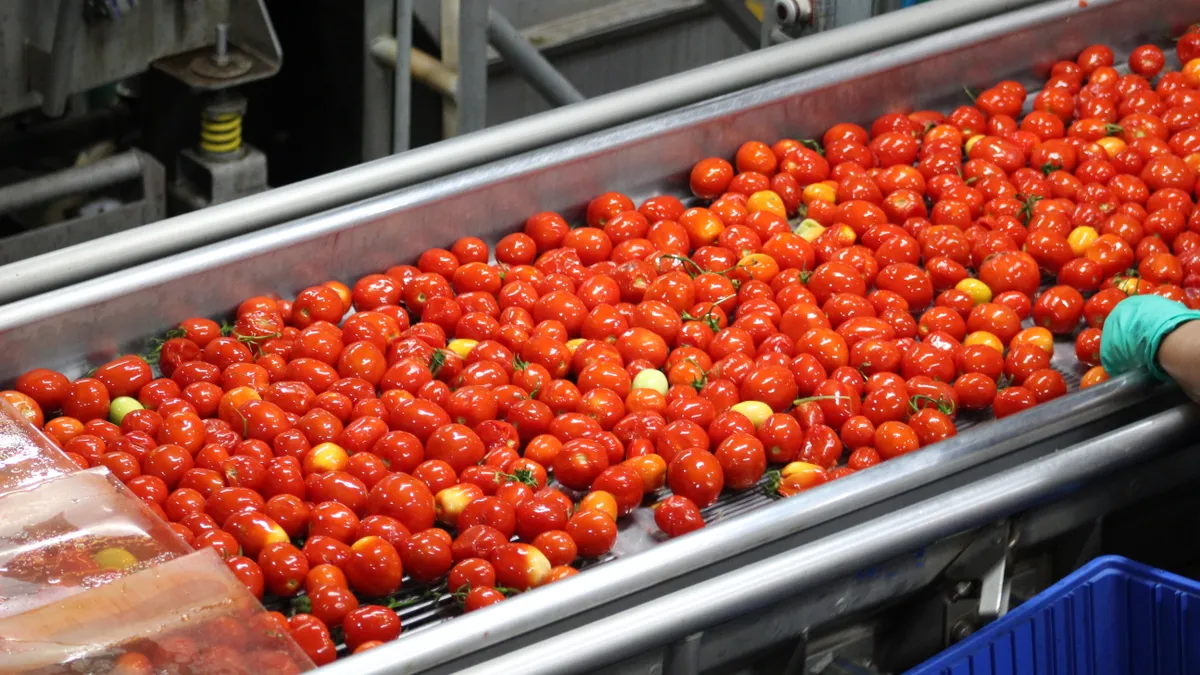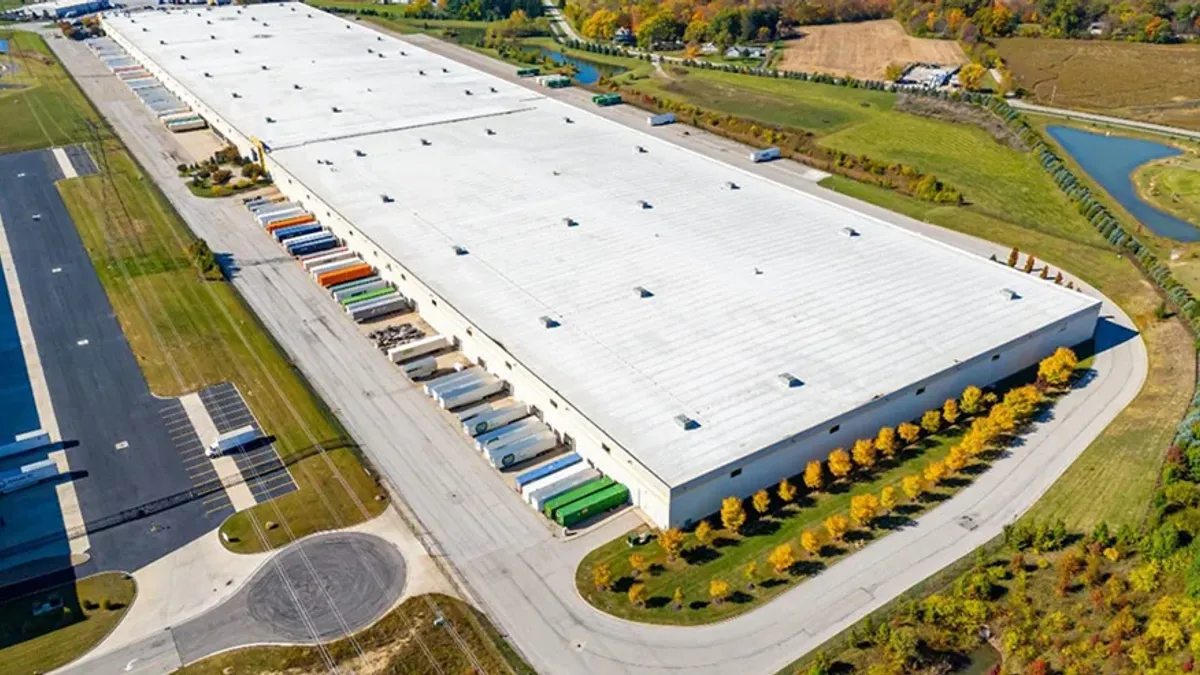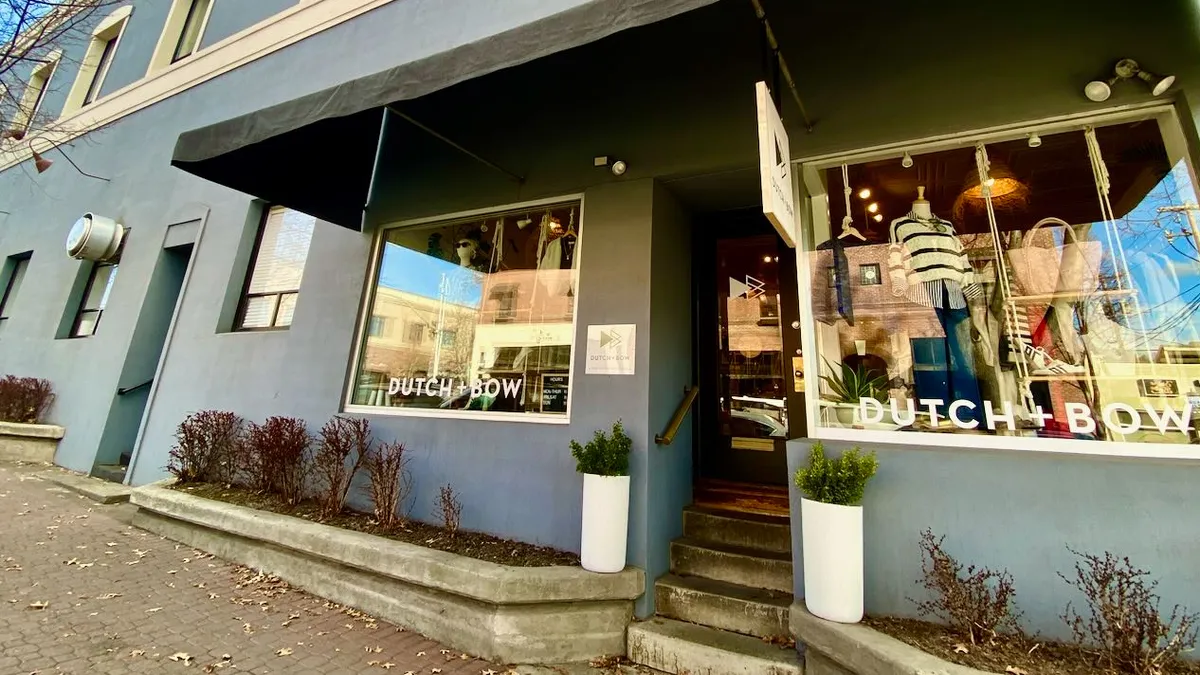The bigger the supply chain the more tiers when it comes to purchasing, right? Not necessarily.
Campbell's turned 150 this year and its tomato processing capabilities are nearly as old — not just for the iconic soup but also for Prego sauce and other products that require tomatoes in some form.
"We believe that we are one of the oldest, if not the oldest tomato processor in the United States that still processes from farms directly to our final products," said Daniel Sonke, director of sustainable agriculture for the Campbell's Soup Company.
Campbell's buys directly from roughly 50 tomato growers. Eighty percent of which have been growing for Campbell's for 25 years or more. The company owns both of its two processing plants in California, which produce 90% of the tomato products used in Campbell's line.
Tomato processing has slowly consolidated over the decades since Campbell's canned its first tomatoes, said Sonke.
"Prior to about 1990, it was very common for branded companies to be vertically integrated similarly to the way we are," he said. Wholesalers selling processed tomatoes are rarely themselves the processor these days, leading to a fairly homogenous supply in the marketplace.
Campbell's two California tomato processing plants process roughly 1.5 billion pounds of tomatoes every summer.
Integration begets differentiation
Sonke said tomato products have become a commodity in the last 50 years. By processing directly and working with farmers for long stretches, Campbell's has taken control of the texture of the tomato products into their soups and sauces. Tomato genetics also play a large part.
"If we wanted to think about using external tomatoes for that we would even have to develop a whole a whole new language of recipes for them."

Daniel Sonke
Director of Sustainable Agriculture, Campbell's Soup Company
Campbell's has worked with scientists and breeders since the 1920s to discover the perfect tomato genetics for soup and other applications, yielding two main seed varieties for its growers to plant. The genetics, along with processing techniques, differentiate Campbell's tomato products to the point where Sonke said it would be nearly impossible to simply switch to sourcing from outside suppliers overnight.
"Our recipes go way back. And if we wanted to think about using external tomatoes for that we would we would even have to develop a whole new language of recipes for them."
Integration bolsters risk mitigation
Agricultural risk, oversimplified, often comes down to the weather. And with most of Campbell's growers in California, there's a fair amount of risk baked into relying on one growing area. But Sonke said the company's grower relationships turn that risk into a benefit. Five years ago, during one of California's worst drought periods in recent memory, when water was restricted and crop yields uncertain, Sonke said farmers showed up at Campbell's facilitates with extra tomatoes to make sure the soup was safe.
Furthermore, foreign growing and production capacity has caused some major swings in California's tomato supply in the last 20 or so years. Imported processed tomatoes tripled from 1993 to 2007, pushing down prices and driving farmers away from the crop, according to Food and Water Watch.
As the market consolidated, processed-tomato dependent businesses became more contract-oriented, seeking, like Campbell's, to lock in pricing and supply. Since Campbell's serves as it's own processor, it also avoids the risk inherent in competing with other buyers.
At 9.4% of cost of goods sold in 2016, according to CNBC, consistent predictable pricing and supply is paramount and the hands-on, integrated purchasing model provides that, said Sonke.
“We have the flexibility to make those adaptations within our own ingredient portfolio in real-time, as opposed to having to renegotiate a contract with an external supplier that would limit our flexibility,”

Daniel Sonke
Director of Sustainable Agriculture, Campbell's Soup Company
But even without a natural disaster or market disruption, any adjustments to recipes or orders are much easier, and cheaper, to make in an integrated system.
"We have the flexibility to make those adaptations within our own ingredient portfolio in real-time, as opposed to having to renegotiate a contract with an external supplier that would limit our flexibility and not be able to respond in real-time like that," said Sonke.
Campbell's model for tomato sourcing certainly isn't all upside. And vertical integration isn't for every supply chain. The upfront and maintenance cost of the facilities and plants to keep so much control of a key ingredients can be prohibitive and Sonke said there have been moments in Campbell's history where the company considered selling the assets. Campbell's shut down two production plants in 2012, but the tomato processing plants have endured.
"We've always come back to the conclusion that our needs are specific. Our quality needs are high. Our portfolio is special, and it makes sense. We've looked at it many times, even recently, and said you know what? We are our own lowest cost highest quality supplier," said Sonke.
Correction: A previous version of this article incorrectly stated how many tomatoes the California plants process.























